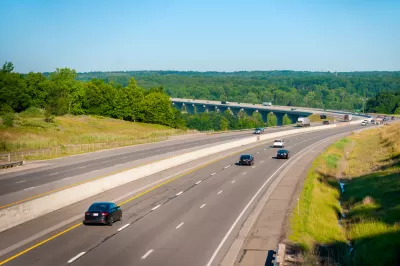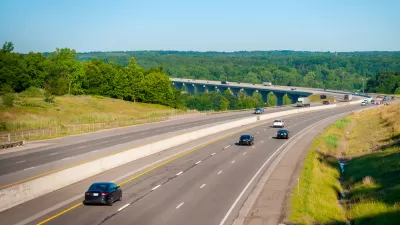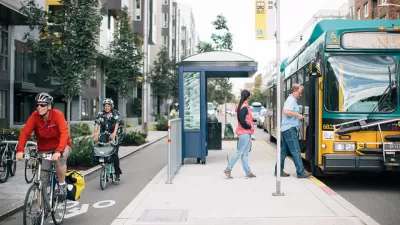The Northeast Ohio Areawide Coordinating Agency (NOACA) is moving forward with a groundbreaking policy to consider regional economic inequities when evaluating potential highway projects.

"A committee of the Northeast Ohio Areawide Coordinating Agency on Friday approved a new draft policy that would for the first time make racial and economic equity part of how it determines whether to approve new highway interchanges," reports Steven Litt.
The committee's decision to advance the new draft policy updates a story first shared by Planetizen in July.
Litt says that Northeast Ohio Areawide Coordinating Agency's (NOACA) full, 46-member board of directors "should approve the policy at its next meeting in December."
Grace Gallucci, executive director of NOACA is quoted in the article touting the policy's new approach to regional planning in Northeast Ohio. The goal of the policy is to "assess as much as we can the localized impact and the regional impact [of proposed interchanges], and to bring the board of NOACA the information so they can make a more informed decision," says Gallucci.
Litt's coverage also includes a list of the projects that would be subject to the new policy. NOACA's ability to veto projects would now be informed by newly detailed quantitative criteria for evaluating interchange projects like those listed in the article.
"New criteria would include detailed cost-benefit analysis of regional impacts on municipal budgets, economic development, environmental protection, quality of life, transit and bike use, and racial equity — both in communities receiving a new interchange and in adjacent and more distant communities," according to Litt.
FULL STORY: NOACA committee recommends policy to evaluate highway interchange proposals on racial, economic equity

Study: Maui’s Plan to Convert Vacation Rentals to Long-Term Housing Could Cause Nearly $1 Billion Economic Loss
The plan would reduce visitor accommodation by 25,% resulting in 1,900 jobs lost.

North Texas Transit Leaders Tout Benefits of TOD for Growing Region
At a summit focused on transit-oriented development, policymakers discussed how North Texas’ expanded light rail system can serve as a tool for economic growth.

Using Old Oil and Gas Wells for Green Energy Storage
Penn State researchers have found that repurposing abandoned oil and gas wells for geothermal-assisted compressed-air energy storage can boost efficiency, reduce environmental risks, and support clean energy and job transitions.

Santa Barbara Could Build Housing on County Land
County supervisors moved forward a proposal to build workforce housing on two county-owned parcels.

San Mateo Formally Opposes Freeway Project
The city council will send a letter to Caltrans urging the agency to reconsider a plan to expand the 101 through the city of San Mateo.

A Bronx Community Fights to Have its Voice Heard
After organizing and giving input for decades, the community around the Kingsbridge Armory might actually see it redeveloped — and they want to continue to have a say in how it goes.
Urban Design for Planners 1: Software Tools
This six-course series explores essential urban design concepts using open source software and equips planners with the tools they need to participate fully in the urban design process.
Planning for Universal Design
Learn the tools for implementing Universal Design in planning regulations.
Ascent Environmental
Borough of Carlisle
Institute for Housing and Urban Development Studies (IHS)
City of Grandview
Harvard GSD Executive Education
Toledo-Lucas County Plan Commissions
Salt Lake City
NYU Wagner Graduate School of Public Service





























